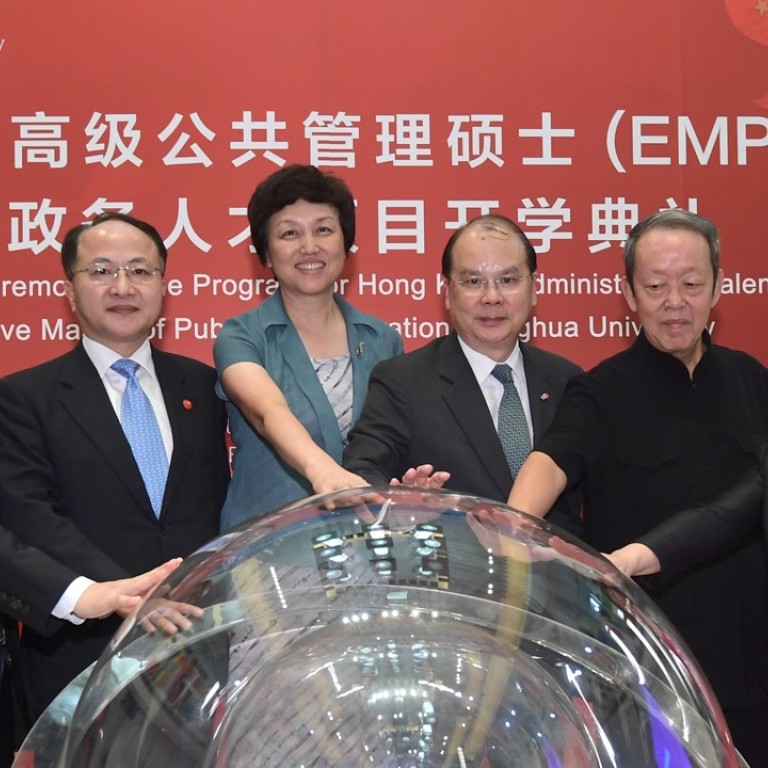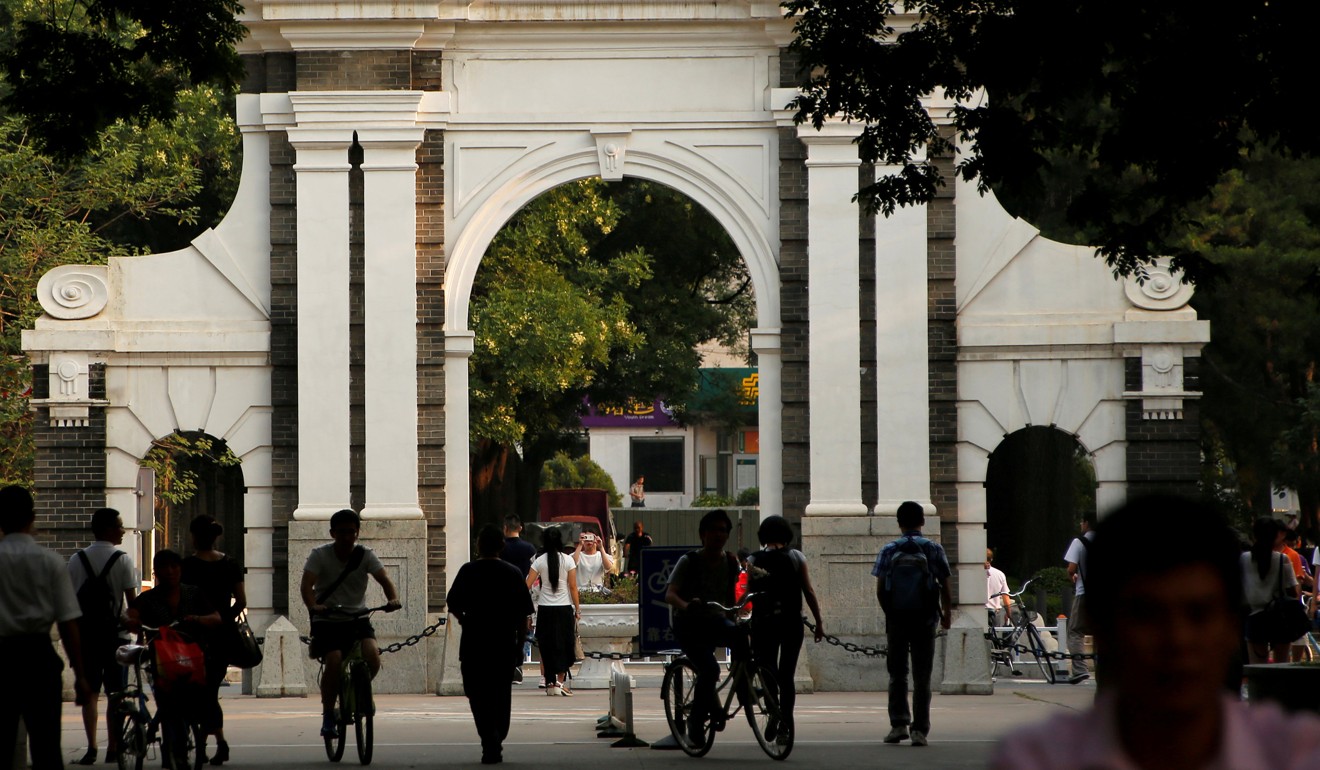
Master’s course for Hong Kong administrative talent at elite Tsinghua University sparks concern over pro-Beijing bias
While some welcome programme as useful for bridging understanding across borders, critics say it may lead to more pro-Beijing members in city’s administration
More than half of students in China’s first executive master’s programme to groom administrative talent for Hong Kong are members or associates of the city’s pro-establishment political bloc, prompting questions about diversity and self-selection.
Launched in September by the school of public policy and management at Beijing’s Tsinghua University, a top mainland tertiary institution, the executive master’s of public administration (EMPA) programme promises to equip Hong Kong’s future administrative talents with an in-depth understanding of governance on both sides of the border.

They also had to take a written test on the Basic Law, the city’s mini-constitution and the governing principle of “one country, two systems”, under which Hong Kong was granted a high degree of autonomy by Beijing since its return to Chinese rule in 1997.
Maxine Yao, one of the students and a member of middle-of-the-road political group Path of Democracy, said candidates were each given a copy of the Basic Law during the test.
“But you must be very familiar with the articles and be able to cite relevant cases,” she said.
Masters in education, public policy and Hong Kong studies meet challenges in a changing world
Yao is one of two members from Path of Democracy enrolled in the class. Another 11 are members of the Democratic Alliance for the Betterment and Progress of Hong Kong (DAB), the largest pro-Beijing political party in the city.
Two other pro-establishment groups, New People’s Party and the Business and Professionals Alliance for Hong Kong, have one district-level associate each in the programme.
Why should a supporter of Hong Kong independence be allowed to take this course?
Others in the class include a civil servant and business leaders such as senior Bank of China executives.
“The programme definitely has certain requirements regarding students’ political stance,” said Tam Yiu-chung, co-founder of DAB and Hong Kong’s only member of the country’s highest legislative body, the National People’s Congress Standing Committee.
While some welcomed the course as useful in bridging understanding between the two sides, critics feared it would be a precursor to more pro-Beijing members joining the city’s administrative service.
But programme director Kitty Poon Kit denied the qualifying test or course was meant to only recruit pro-government candidates. She said it was instead aimed at examining how prospective public servants would resolve potential conflicts from different interpretations of the Basic Law and with the mainland.
“It’s different from an academy of civil servants,” said Lau Siu-kai, the programme’s consultant and vice-chairman of the Chinese Association of Hong Kong and Macau Studies, a semi-official think tank.
“Graduates can join the government, or take up other positions in a broader political system, or serve in the public management sector,” Lau said.
Explain pro-Beijing university president’s five-year term, Hong Kong students warn
Dr Nelson Lee Ka-kiu, a political scientist at Chinese University, expressed worry that the qualifying criteria would become compulsory in future, narrowing the diversity of talent groomed.
Hong Kong government’s principal officials accountability system, introduced in 2002, allows the chief executive to nominate non-civil servants for leading positions in the administration. While nominations for major official posts are subject to Beijing’s approval, there is greater freedom in the appointment of two other tiers of officials: undersecretaries and political assistants.
“The central government wants the principal officials in Hong Kong to understand its ways of thinking and behave within its political framework,” Lee said.
Future city leaders may learn ropes in Kwun Tong as site eyed for civil service college
“The civil servants have never been completely trusted in these aspects ... and the programme [in the long term] could prepare candidates, including those from local political parties, for appointments.”
Tam dismissed concerns the programme would affect Hong Kong governance by allowing more intervention from Beijing or the pro-Beijing bloc.
“This is narrow-minded,” he said. “Should we also call officials who studied abroad an intervention?”
Starry Lee Wai-king, chairwoman of DAB, said she believed civil servants would remain the city’s core governing rank. “But it would be best if civil servants and political talents could complement one another with their administrative and political experiences,” she added.
Additional reporting by Kimmy Chung

